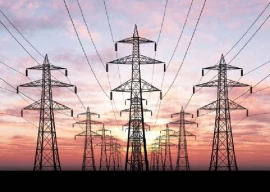
The campus protests and encampments at dozens of US universities are all over the news. I have been a faculty member since 2006 and have never seen anything quite like this. For those who have been around much longer than me, I have been told that this has reminded them of the protests during the Vietnam war and more recently in the 1980s against the apartheid government of South Africa. Yet, in many ways, this moment is also different — organised in the era of social media, playing out in real time when videos of every incident are shared all across the world.
Those who are protesting are a diverse community of students and faculty. It is not just Arab and Muslims who are part of these protests. Students of all faiths, including those who follow the Jewish, Christian and Hindu traditions, as well as students who are not affiliated with any faith group, are part of these protests. Similarly, we see students of diverse ethnic and racial groups at the forefront.
The core issue is not simply the war in Gaza, but something much deeper. It is the very structure of a modern American research university. Many US universities are large and complicated organisations with endowments and assets that go well into billions of dollars. The management of these assets and their continued growth is a central part of how large universities operate. Rich universities that benefit from those endowments and assets are able to attract top talent and invest in research infrastructure. At this moment, questions are being asked about where the university money is being invested, and whether the actions of the companies where these assets are invested align with the values of the university students and other members of the university community. There are also important questions about transparency in investments, and ties of universities to organisations that may be involved in causing harm to vulnerable communities. Similarly, there are questions about who gets to fund research at the university. For example, should organisations and institutions, which are involved in manufacture of weapons, be allowed to sponsor research at a university campus? What about military sponsored research? What if that research is asking questions in fundamental science? Some of these questions have been asked before — for example during the Vietnam war and during the apartheid era, as well as around investments in fossil fuel industries — but some questions are new, and more complicated given the entangled nature of investments and relative lack of transparency. Fierce competition between universities further fuels the desire to raise more money, invest broadly and grow endowment rapidly.
The protests and encampments have brought another issue to the fore: the right to protest and freedom of speech. Universities across the US have tried to handle them in various ways, including ways that are deeply problematic. The decisions by administrators at Columbia University and the University of Texas at Austin, for example, have been met with wide condemnation by faculty.
The protests are also happening at an important time in the academic calendar. Commencement ceremonies that last for days are a time when the campus is enveloped in a festive and celebratory atmosphere and brings together tens of thousands of students and their families. The protests and encampments, as well as university response to these, are likely to make an impact on these ceremonies. The University of Southern California (USC) has already cancelled the main commencement — an event that typically brought more than 60,000 people to USC campus.
I do believe that this particular moment is historic, and I do hope that this moment leads to universities becoming a more inclusive place that foster creativity, emphasise humanity and prioritise human dignity through all of its endeavours and actions, including in its choice of investments. But I also hope that the current moment with a focus on US universities does not distract us from a place that has lost all of its universities: Gaza.
Published in The Express Tribune, April 30th, 2024.
Like Opinion & Editorial on Facebook, follow @ETOpEd on Twitter to receive all updates on all our daily pieces.






















1716141490-0/image-(28)1716141490-0-270x192.webp)




COMMENTS
Comments are moderated and generally will be posted if they are on-topic and not abusive.
For more information, please see our Comments FAQ